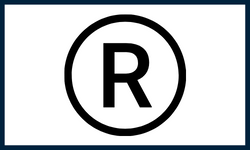*Originally posted on February 28, 2011
 By now you may have heard that Sarah Palin and Bristol Palin have each filed applications in the United States Patent and Trademark Office (“PTO”) to register their individual names as federal trademarks. Sarah identified her services as “information about political issues… Educational and entertainment services, namely providing motivational speaking services in the field of politics, culture, business, and values.” Bristol described her services as “educational and entertainment services, namely providing motivational speaking services in the field of life choices.” Their trademark applications were initially rejected for failure to provide the appropriate signatures. Nonetheless, this is an error that is easily overcome.
By now you may have heard that Sarah Palin and Bristol Palin have each filed applications in the United States Patent and Trademark Office (“PTO”) to register their individual names as federal trademarks. Sarah identified her services as “information about political issues… Educational and entertainment services, namely providing motivational speaking services in the field of politics, culture, business, and values.” Bristol described her services as “educational and entertainment services, namely providing motivational speaking services in the field of life choices.” Their trademark applications were initially rejected for failure to provide the appropriate signatures. Nonetheless, this is an error that is easily overcome.
Though it may seem that trademarking one’s name is the height of narcissism, it is actually a common practice, and a necessary one at that. The fashion world, for example, is full of personal name trademarks: Chanel, Levis, Versace, and Gucci are but a few examples. Registration offers a degree of protection from those who wish to exploit a personal name without the owner’s permission. On the other hand, if you’re famous, it does not prevent others from using your name in the context of commentary, satire, critique, or news reporting.
Under U.S. trademark law, the general rule is that because personal names are considered descriptive, they are not registrable unless the applicant demonstrates that his or her name has “acquired distinctiveness.” Acquired distinctiveness means that over time, the consuming public associates the personal name mark with the goods or services, identified by the mark. If the public perceives the personal name as just a personal name, it has not acquired distinctiveness. The PTO has a set of established rules to determine whether a surname is “primarily merely a surname” and thus not registrable. The PTO will look at
(1) whether the surname is rare;
(2) whether the term is the surname of anyone connected with the applicant;
(3) whether the term has any recognized meaning other than as a surname
(4) whether it has the “look and feel” of a surname; and
(5) whether the stylization of lettering is distinctive enough to create a separate commercial impression
If the name to be registered is that of a living person, written consent must also be provided. In fact, Sarah Palin’s trademark registration was initially refused because she had not provided written consent to the registration by providing her signature. To summarize, a personal name mark is registrable if it is not merely a surname, if it has acquired distinctiveness, and it has the consent of the living individual (if applicable).
Once a personal name earns trademark status, it can also become problematic. Take, for example, the circuitous case of Joseph Abboud who registered his personal name as a trademark identifying men’s apparel. In 1988 he licensed his trademark to JA Apparel in a joint venture and signed a non-compete agreement. Abboud left the business in 2005 and, after his non-compete agreement expired, started his own line of clothing named “jazz,” which he identified as a “new composition by designer Joseph Abboud.” JA Apparel filed suit against Abboud for trademark infringement. The court decided in favor of JA Apparel despite Joseph Abboud’s fair use argument. The court enjoined Abboud from using his name as a trademark in a manner that would result in a likelihood of confusion with the trademarks owned by JA Apparel. Abboud appealed the decision, resulting in the remand of the case back to District Court, which eventually upheld its earlier injunction but permitted Abboud to make fair use of his name in a business context so long as he avoided using it as a trademark. So beware, once you sell your name to the devil, you may not get it back.
–Adam G. Garson, Esq.

